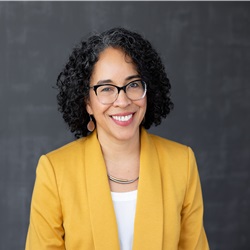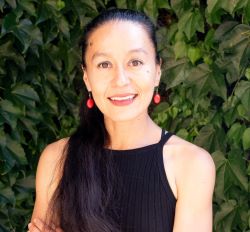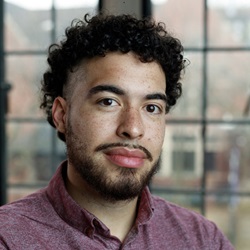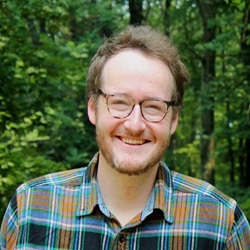2025-2026 Colloquia
September 22nd
KARL SWINEHART
University of Louisville
A Difficult Language: Aymara Media, Linguistic Labor, and Urban Indigeneity in Bolivia
The cultivation of the Aymara language affords forms of expertise and authority for language professionals, who often foreground its complexity and emphasize its difference from Spanish. Bolivian Aymaras’ insistence on keeping the language in the public sphere poses difficulties to a colonial status-quo and to those who would rather not accommodate, much less learn, this or any other Indigenous language. Drawing on analyses of Bolivian media and research among Bolivian Aymara language educators and media professionals, this talk examines these dynamics and their impact, both on the Aymara language itself and on the unequal terrain of Bolivia’s plurinational, multilingual society.
October 20th
Uzma Rizvi
Pratt Institute
Data Visualization as Storytelling: Making data from MohenjoDaro accessible
In this talk we will explore data visualization as a form of storytelling from the third millennium BCE site of MohenjoDaro (Sindh, Pakistan). These forms of communication address concerns around data accessibility, as well as providing a platform to experiment with new methodologies that expand the scope of archaeological work.
Co-sponsored by South Asian Languages and Cultures
October 27th
Gina Perez 
Oberlin College
Sanctuary and Accompaniment in Moments of Crisis
The idea and practice of sanctuary have a long and vexed presence in U.S. political discourse, community organizing and social movements. This talk explores the ways activists, service providers, faith leaders and religious communities in Northeast Ohio draw on long histories of faith-based and secular organizing to mobilize and respond to immigrant precarity, especially among Latina/o communities in the state. While sanctuary has become polarized word and practice, the idea of accompaniment, with roots in Latin American liberation struggles, increasingly circulates as both a political and religious practice as well as an act of solidarity. What lessons do we learn about our current immigration enforcement crisis by centering sanctuary and accompaniment? Practices of sanctuary and accompaniment, I argue, are grounded in local histories and attuned to national and transnational dynamics that offer valuable insight for those who seek to challenge anti-immigrant rhetoric and nurture the work of sanctuary people.
Co-sponsored by Latina & Latino Studies Program
Co-sponsored by Program in American Studies
November 13
Sophie Chao
University of Sydney
Eating and being eaten: the meanings of hunger among Marind, West Papua
In this talk, Dr Chao will draw on her recently published book, Land of Famished Beings: West
Papuan Theories of Hunger (Duke University Press, 2025) to examine how Indigenous Marind
communities experience, conceptualize, and critique the condition of hunger in lowland West Papua
—a place where industrial plantation expansion and settler-colonial violence are radically
reconfiguring food-based ecologies, socialities, and identities. Instead of seeing hunger as an
individual, biophysical state defined purely in nutritional, quantitative, or human terms, Dr Chao will
uncover how hunger traverses variably situated humans, animals, plants, institutions, infrastructures,
spirits, and sorcerers. When approached through the lens of Indigenous Marind philosophies,
practices, and protocols, hunger reveals itself to be a multiple, more-than-human, and morally
imbued modality of being—one whose effects are no less culturally crafted or contested than food
and eating. In centering Indigenous theories of hunger, the talk invites us to rethink the relationship
between the environment, food, and nourishment in an age of self-consuming capitalist growth.
Dr. Sophie Chao is Senior Lecturer in Anthropology at the University of Sydney. Her research
investigates ecology, capitalism, health, food, and justice in the Pacific. She is author of In the
Shadow of the Palms: More-Than-Human Becomings in West Papua (2022) and Land of Famished
Beings: West Papuan Theories of Hunger (2025) and co-editor of The Promise of Multispecies
Justice (2022) and Beyond Bios: The Life of Matter and the Matter of Life (2026), all published by
Duke University Press. Chao is of Sino-French heritage and lives on unceded Gadigal lands in
Sydney, Australia. For more information, please visit www.morethanhumanworlds.com.
January 26
Ryan Cecil Jobson
University of Chicago
Radiation and the Question of Power: C.L.R. James and the Struggle for Chaguaramas
In the late colonial British West Indies, movements for independence launched demands for the democratic control of land and natural resources. In petroleum-rich Trinidad, however, oil was not the only theater in which energy matters fueled anticolonial agitation. In 1959, public fears mounted over a secret missile tracking station built by the U.S. military at its Chaguaramas base on Trinidad’s northwest peninsula. Subsequently, rumors of hazardous radiation generated demands for the return of the base and the establishment of a federal capital at Chaguaramas. Turning to the neglected writings of the Trinidadian Marxist C.L.R. James on the radiation issue, this article meditates on the dual meaning of power—of radiant power and political power—that surfaced in the anti-colonial struggle for Chaguaramas. For James, the scientific fact of radiation remained secondary to the political fact of radiation as a basis for working class power and self-organization.
April 13
Haeden Stewart
Univerity of Massachusetts, Amherst
Exposed: The Archaeology of Industrial Landscapes and Slow Violence
We are living through an era defined by the environmental impact of anthropogenic waste. The twin projects of colonization and industrialization have produced waste at a massive scale, fundamentally transforming environments with devastating social impacts. This is particularly true of the North American West, an area that has been the frontier of industrialized extractive projects, driven by Euro-American settlement. These projects have re-made ecologies, introduced new species, and left behind mountains of industrial waste. As it leaches into the landscape and its ecologies, industrial waste has an impact on the livelihood and the bodies of the communities who rely upon these environments. This violence is experienced drastically uneven, yet its effects are often slow, hard to see and hard to avoid. Drawing from archaeological work on two industrial landscapes in Western North America, I show how two marginalized communities lived along-side industrial waste and were endemically exposed to its toxic harms. I argue that these communities were not only physically harmed by this waste but were forced to grapple with the uncertainties that accompanied wastes’ latent persistence.
Haeden Stewart is Assistant Professor of Anthropology at the University of Massachusetts, Amherst. His research focuses on the long-term effects of industrialization and industrial waste on marginalized communities in the North American West and uses a range of archaeological, ethnographic and environmental science methods to explore the histories of environments and people who are formed and deformed by persistent industrial processes. He is the author of the upcoming book, Revenant Waste: Mill Creek and the Toxic Legacies of the Anthropocene (2026).'
April 20
Delaney Glass
University of Toronto
TBA
May 11
Aris Clemons
University of Tennessee
U.S. Black Vernacular Spanish(es): Endarkened Storywork as Linguistic Method and Theory
This talk introduces U.S. Black Vernacular Spanish(es), a book project mapping the linguistic and cultural practices of Black-identified Spanish speakers across the United States. Focusing on one chapter, the presentation examines 45 sociolinguistic narratives shaped into six Endarkened counterstories, illuminating the heterogeneity of Black Spanish—not as a fixed dialect, but as a fluid, context-responsive practice.
Rooted in Endarkened storywork (Toliver 2022) and critical race counterstories (Yosso, 2013), this work blurs the lines between method and theory. Analysis is guided by a Black networked consciousness—a relational, nonlinear mode of interpretation that prioritizes resonance, silence, gesture, and interruption over traditional thematic coding. Stories are not treated as extractable data, but as living theory and communal memory—what Toliver (2022) calls Black deciphering technologies: meaning-making rooted in experience, resistance, and cultural knowledge. This epistemological framework draws from Smitherman’s (1986) Black communication system, emphasizing continuity over standardization and centering African diasporic worldviews. Language is approached as a tool for survival, identity formation, and home-making in spaces of racial, national, and linguistic dislocation. Each story functions as a situated event, contributing to an intertextual archive of Afro-diasporic presence.
Ultimately, through this innovative analysis, I argue that community alignment influences both the production and reception of Black Spanish as a locally situated ethnolect. It positions linguistic expression as a site of ethno-racial solidarity and resistance to dominant identity regimes, laying the groundwork for future research on Black Spanish varieties and their role in shaping alternative cultural and political imaginaries.
Bio: Dr. Aris Clemons is an Assistant Professor of Hispanic Linguistics and Culture in the Department of World Languages and Cultures at the University of Tennessee Knoxville. Having completed her doctoral studies in Spanish and Portuguese alongside Mexican American and Latina/o Studies at the University of Texas at Austin, her expertise spans the fields of linguistics, education, anthropology, and Black and Latinx studies. Importantly, her work questions the ways that race is created and maintained through social discourses in education and mass media spaces. In doing this work, Dr. Clemons has received several prestigious grants and research awards, including large grants from the American Council of Learned Societies, the National Endowment for the Humanities, the National Science Foundation, the National Academy of Education/Spencer Foundation, and the Department of Education. With these grants, Dr. Clemons has written curricula for the teaching of Spanish to Black students in the United States as well as over twenty publications about Black languaging populations across the Americas
May 18
Alejandra Nuñez de la Mora
Universidad Veracruzana
TBS
